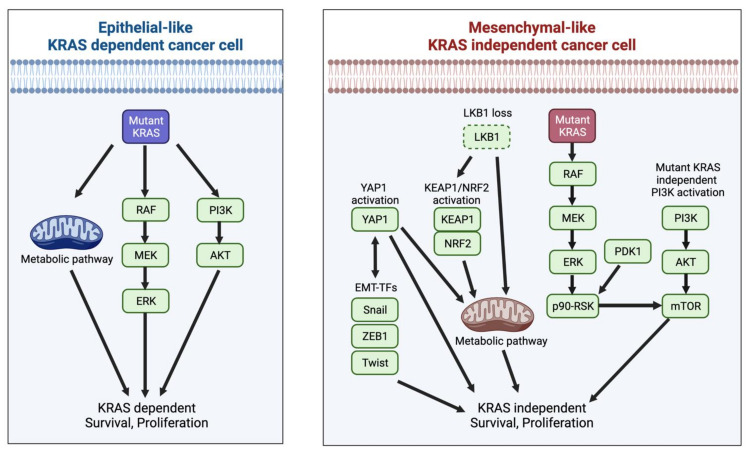Figure 1.
Heterogeneity of KRAS mutant cancer characterized by EMT and KRAS dependency. The role of mutant KRAS in proliferation and survival is variable in tumor cells driven by KRAS mutations. While KRAS-dependent cancer cells show an epithelial-like phenotype, KRAS is dispensable for the survival of mesenchymal-like KRAS mutant cancer cells. KRAS mutant cancer cells acquire mutant KRAS independency by various means: activation of RSK-mTOR pathway and/or KEAP1-NRF2 pathway, YAP activation, LKB1 loss, and mutant KRAS-independent PI3K activation. These bypass signaling pathways are involved in activation of survival signaling pathways, rewiring of metabolic pathways, and induction of EMT. EMT transcription factors also promote KRAS independency. The activated bypass signaling networks and EMT are interdependent. Abbreviations: EMT, Epithelial-to-mesenchymal transition; EMT-TFs, Epithelial-to-mesenchymal transition transcription factors; KEAP1, Kelch-like ECH-associated protein 1; KRAS, v-Ki-ras2 Kirsten rat sarcoma viral oncogene homolog; LKB1, liver kinase B1; mTOR, mammalian target of rapamycin; NRF2, Nuclear factor erythroid 2-related factor 2; PI3K, Phosphatidylinositol 3-Kinase; RSK, Ribosomal S6 kinase; YAP, Yes-associated Protein 1.

